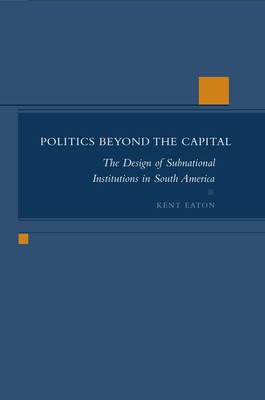
- We will send in 10–14 business days.
- Author: Kent Eaton
- Publisher: Stanford University Press
- ISBN-10: 0804749914
- ISBN-13: 9780804749916
- Format: 15.2 x 23.6 x 2.2 cm, hardcover
- Language: English
- SAVE -10% with code: EXTRA
Reviews
Description
A recent wave of decentralization in Latin America has increased the prominence of politicians at the subnational level. Politics Beyond the Capital is the first book to place this trend in comparative historical perspective, examining past episodes of decentralization alongside contemporary ones to determine whether consistent causal factors are at play. At the center of the book is the rigorous testing of two key hypotheses that attribute decentralization to liberalizing changes in political regime type and economic development strategy. The book focuses on the four Latin American countries where politicians have most extensively engaged in the redesign of subnational institutions: Argentina, Brazil, Chile, and Uruguay. By reframing the politics of decentralization as the politics of designing subnational institutions, the book moves beyond the policy orientation of much of the current literature, and broadens the debate by analyzing not just decentralization but re-centralization as well.
EXTRA 10 % discount with code: EXTRA
The promotion ends in 17d.03:29:13
The discount code is valid when purchasing from 10 €. Discounts do not stack.
- Author: Kent Eaton
- Publisher: Stanford University Press
- ISBN-10: 0804749914
- ISBN-13: 9780804749916
- Format: 15.2 x 23.6 x 2.2 cm, hardcover
- Language: English English
A recent wave of decentralization in Latin America has increased the prominence of politicians at the subnational level. Politics Beyond the Capital is the first book to place this trend in comparative historical perspective, examining past episodes of decentralization alongside contemporary ones to determine whether consistent causal factors are at play. At the center of the book is the rigorous testing of two key hypotheses that attribute decentralization to liberalizing changes in political regime type and economic development strategy. The book focuses on the four Latin American countries where politicians have most extensively engaged in the redesign of subnational institutions: Argentina, Brazil, Chile, and Uruguay. By reframing the politics of decentralization as the politics of designing subnational institutions, the book moves beyond the policy orientation of much of the current literature, and broadens the debate by analyzing not just decentralization but re-centralization as well.


Reviews